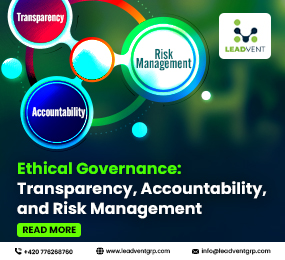ESG and Climate Action in Africa: A New Era of Responsibility and Resilience
Africa is no stranger to climate challenges. From droughts in the Sahel to floods in East Africa, the continent faces some of the most immediate and severe effects of climate change despite contributing just a small fraction of global emissions. But beyond the headlines lies a powerful shift in thinking: one that connects Environmental, Social, and Governance (ESG) priorities with long-term resilience, investment, and inclusive development.
For decades, African countries have juggled urgent development needs energy access, poverty alleviation, and infrastructure against the backdrop of environmental vulnerability. Now, the rise of ESG frameworks is reshaping how investors, governments, and communities approach growth: not just for profit, but for purpose.
What ESG Means in the African Context
ESG is often seen as a corporate tool, but in Africa, it goes deeper. Environmental sustainability isn’t just a regulatory checkbox it’s a matter of survival. Social impact isn’t just philanthropy it’s core to economic inclusion. And good governance isn’t a slogan it’s the foundation of trust and investment.
In practice, this means that African companies and governments are increasingly building ESG factors into everything from infrastructure planning to energy development and agriculture. Renewable energy projects across Kenya, South Africa, and Nigeria are not only reducing carbon emissions they’re creating jobs and powering underserved communities. Reforestation efforts are being tied to community-led conservation and carbon markets. And public-private partnerships are placing transparency and impact reporting at the center of funding decisions.
Driving Climate Finance and Green Investment
Global capital is beginning to notice. ESG-aligned investments in Africa are rising, particularly in clean energy, sustainable agriculture, and climate-resilient infrastructure. Institutions like the African Development Bank and private equity firms are integrating ESG metrics into project screening not as a formality, but as a filter for long-term risk and return.
At COP27 and beyond, African leaders have emphasized the need for climate finance to be more accessible and equitable. ESG frameworks can help translate local realities into global investment language giving financiers confidence while centering African voices in climate solutions.
Challenges on the Ground
The road ahead isn’t simple. Measuring ESG performance remains difficult in regions with limited data. There’s also the risk of “greenwashing” or one-size-fits-all frameworks that ignore local contexts. But momentum is building. A growing number
of African companies are producing ESG reports, local stock exchanges are introducing sustainability indices, and regional ESG guidelines are beginning to take shape.
Key Takeaway:
Africa’s climate story is not just one of vulnerability it’s one of leadership, innovation, and rising responsibility. By weaving ESG principles into its development path, the continent is proving that economic growth, environmental protection, and social equity don’t have to compete they can advance together.
Learn more on our website: https://www.leadventgrp.com/events/esg-and-climate-africa-summit/details
For more information and group participation, contact us: [email protected] .
Leadvent Group - Industry Leading Events for Business Leaders!
www.leadventgrp.com | [email protected]
















